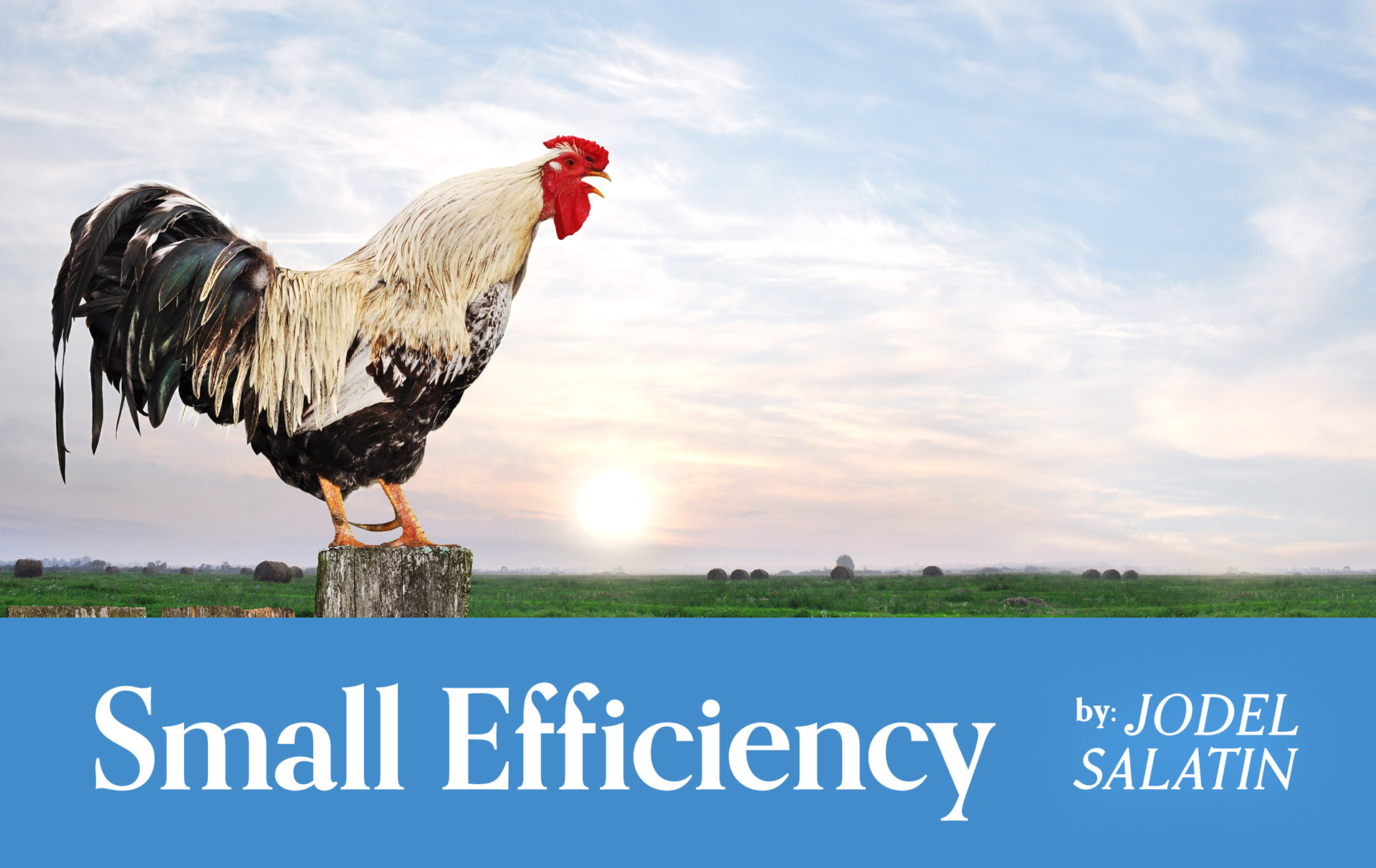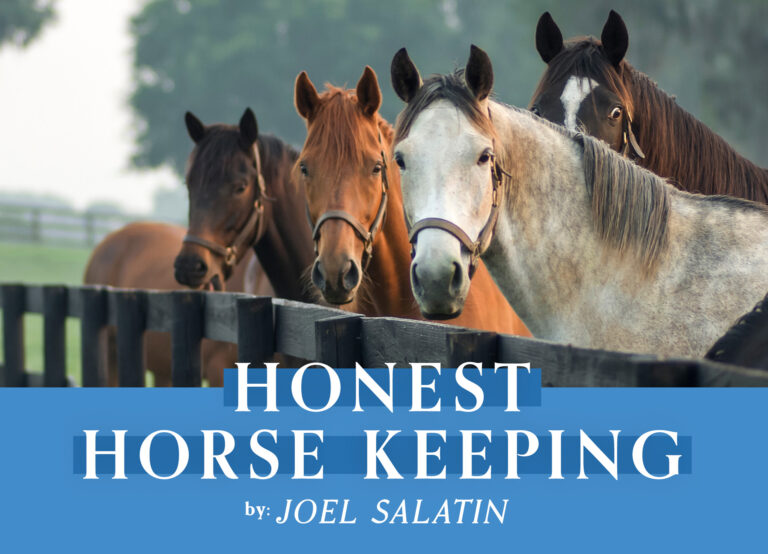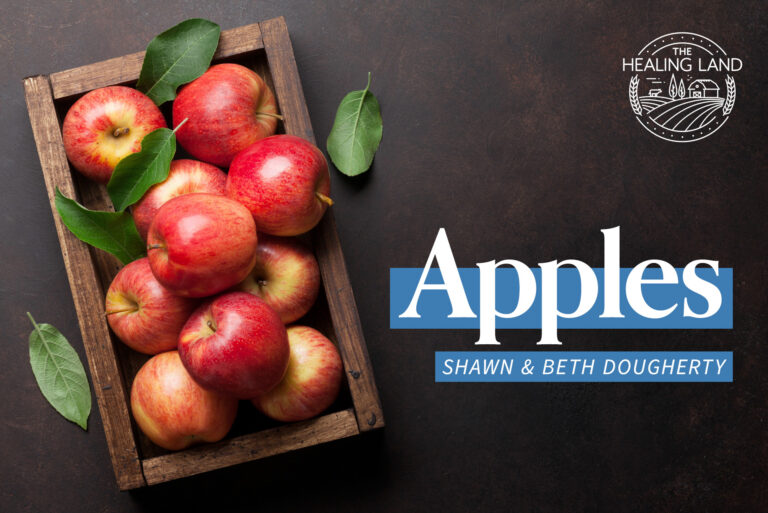By Joel Salatin, Plain Values
For decades, I’ve been direct marketing our farm’s production directly to retail customers as a direct-marketed, branded product. That means our farm embraces the role of middle-man and we have a logo.
We practice craft rather than commodity. The Harvard Business Review analyzed the difference and found that although businesses can be profitable in either craft or commodity, success depended on staying in the same column. In other words, a craft trying to scale to a commodity failed, and a commodity trying to present itself as a craft failed. The differences are profound.
Commodity hinges on homogeneity, specialization, the least cost, and a fairly unlimited market. Because commodities trade on a global scale, the market can absorb any newcomer at any scale without changing the price. You could add a 1,000-cow beef operation tomorrow, and it wouldn’t change the price of cattle one penny. Because the global market sets the price, success depends on narrow margins compensated at scale. While a dime a chicken may not sound like much, if you’re producing a million of them per year, that translates to $100,000.
Commodity requires as little variation as possible. That way, imports and exports can be labeled and certified as to type so that all buyers know what they’re getting sight unseen. Nobody wants to separate good corn from poor corn or good tomatoes from bad tomatoes. Furthermore, commodities require specialized production and objectives. A juicy sweet tomato can’t survive shipping well; commodity tomatoes must be structurally sound foremost—above taste and nutrition—in order to survive bouncing around in the back of a tractor-trailer for 1,500 miles. That’s why all commodity tomatoes are like cardboard. Specialization, sameness, and low price drive commodity trading.
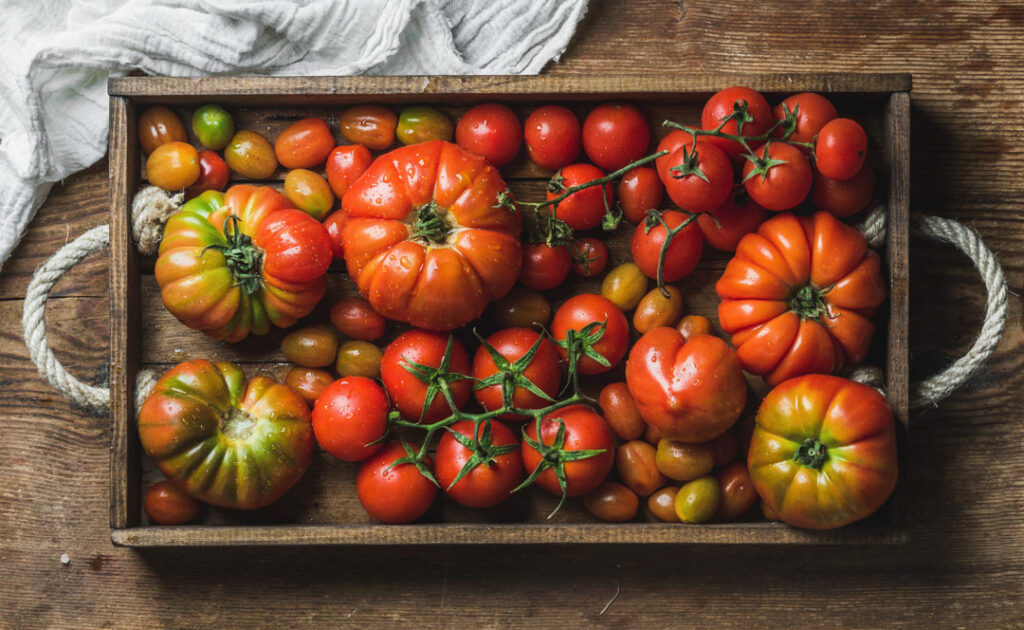
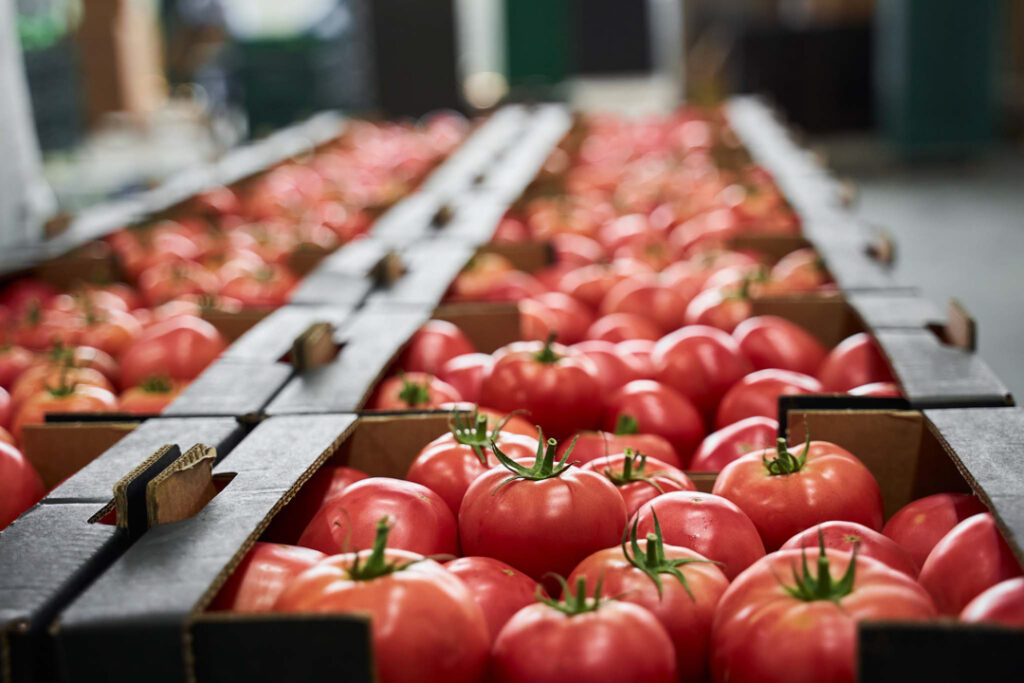
Craft, on the other hand, only thrives if it’s highly differentiated from conventional commodity options. A potter’s hand-made mug attracts buyers because it’s unique. It’s not like all the mugs on the shelf at Wal-Mart. Because it’s unique, craft requires far more labor and personal involvement. In craft, we trade cookie-cutter similarity for individual distinctiveness.
Because craft is the opposite of mass production, its cost is higher than comm-odity counterparts. A homemade apple pie commands a higher price than commodity frozen pies at Costco. While the commodity outfit compensates for narrow margins with scale, craft outfits compensate for volume with wider margins. Craft can never be the lowest cost, nor should it be.
As a craft food producer, I’ve found these principles spot on, but some interesting things are developing culturally that offer some new opportunities. Specifically, two trends are starting to offer craft additional market options.
The first is a new efficiency of small. Anyone in the commodity business preaches, lives, and breathes scale. It’s all about scale. How big can it be? How fast can it scale? In direct opposition to that, on our farm, the first question we ask about a potential enterprise is, “How small can it be?” We believe that if it won’t work well small, it probably won’t work well big. Almost nothing in life that struggles when small sails smoothly when big.
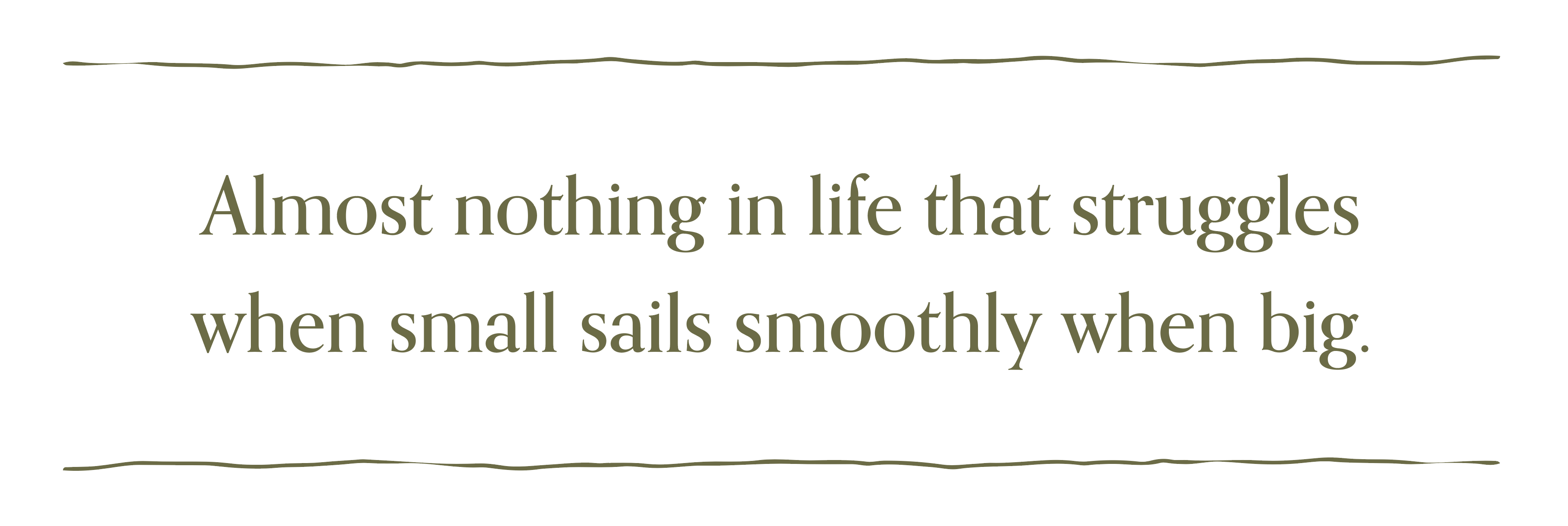
The cultural dysfunction and disturbance plaguing our nation these days, on a large scale, is a direct result of the breakdown in the family and individual abandonment of Christian moorings. All the government agencies and federal policies pouring out to solve the drug crisis, the teen suicide crisis, the debt crisis—name any problem—is useless without a fundamental return to biblical truth as individuals and families.
The same thing is true in business. If it’s floundering small, borrowing another half a million dollars to double in size will not fix things. To be sure, some businesses desperately need capital or do indeed need more scale, but in general, growth does not fix fundamental problems. If the work environment is toxic when an outfit is small, adding personnel won’t alleviate the toxic work culture.
Because we’re a craft producer, our volume has always been small and our prices higher than conventional commodities. Of course, we argue that our pastured chicken and pastured eggs are completely different than industrial conventional chicken or eggs in the store. Indeed, empirical nutritional testing bears that out. In some nutrients, our eggs are 20 times as nutritious as conventional (i.e. folic acid). The higher price is completely justified, just like a higher-priced hand-made rocking chair that will last a century versus one from Ikea that falls apart in five years.
Price prejudice has always been a marketing impediment that we overcome with messaging about nutrition, environment, stewardship, and related superior qualities. We’ve been accused of being elitist, price gougers, disinterested in common folks, greedy, and irrelevant. But we don’t pollute water, stink up the air, encourage C Diff and MRSA (superbugs created by subtherapeutic antibiotic use in animal agriculture), and send nutrient-deficient food onto the American plate. Unfortunately, none of these liabilities are captured at the checkout counter.
This may change. Early this year, a customer came into our farm store and, while perusing the meat counter, exclaimed, “wow, sirloin steak for $9; it’s $16 at Costco.” For the first time in my life, our prices—at least sirloin steak—were lower, far lower, than a conventional commodity product. How can this be?
After doing some thinking and sleuthing, here’s my analysis. First, covid has gummed up the works for scaled enterprises. In other words, the larger the outfit, the more covid gums up the operation. Suddenly human resource departments and corporate officers spend countless time and energy dealing with quarantine protocols and trying to protect themselves from litigation brought by employees who allege improper covid safety precautions. The Wall Street Journal recently had a story on the biggest concerns facing CEOs for 2022, and number one was covid protocols.
Every morning CEOs of big businesses wake up wondering who among their 1,000-plus employees will call a government agency and allege some covid mitigation violation. Or these CEOs worry about who will call an attorney and launch a lawsuit against some covid policy that it’s either too much or too little. Bigger businesses are in the crosshairs of covid backlash, and it’s radically reducing efficiency. That is the nutshell reason for supply chain snafus. Ted over in packaging got covid, so the five guys who work in that room need to go home for a week, which means we can’t operate the packaging room, which means we can’t get the product boxed, which means we can’t ship, which means the customer is angry, which raises our costs, and on and on. You get the picture.
In my small business, with only about 25 people deriving their salary from our outfit, I don’t wake up every morning with these threats on my mind. On our farm, we didn’t mask; we didn’t make any covid protocols. We just went on about our business as usual. To be sure, we don’t drink Coca-Cola; we drink a lot of good water, sleep 8 hours a night, practice and promote forgiveness to keep relationships tender and unstressed, exercise, get lots of sunlight, and eat the most nutrient-dense food on the planet. We’d rather do that to build our immune systems than upend our lives worried about a bogeyman that tends to attack immuno-compromised people. The number one enemy of the immune system is spiritual, physical, or emotional stress.
Furthermore, the supply chains and costs, from petroleum to chemical fertilizer on which commodity farms depend, are not an issue on our farm. We generate our own fertilizer through a carbon economy with composting and management-intensive perennial pasture protocols. Between extricating from many of the typical dependencies and building our immune systems, our farm operates outside the vulnerabilities that plague larger conventional businesses.
We’re a speedboat navigating the rocks and shoals of societal disturbance while our conventional competitors are bogged down like aircraft carriers in treacherous waters. Could it be that we are entering a time when small not only beats large in quality but also in price? That is indeed an exciting possibility.
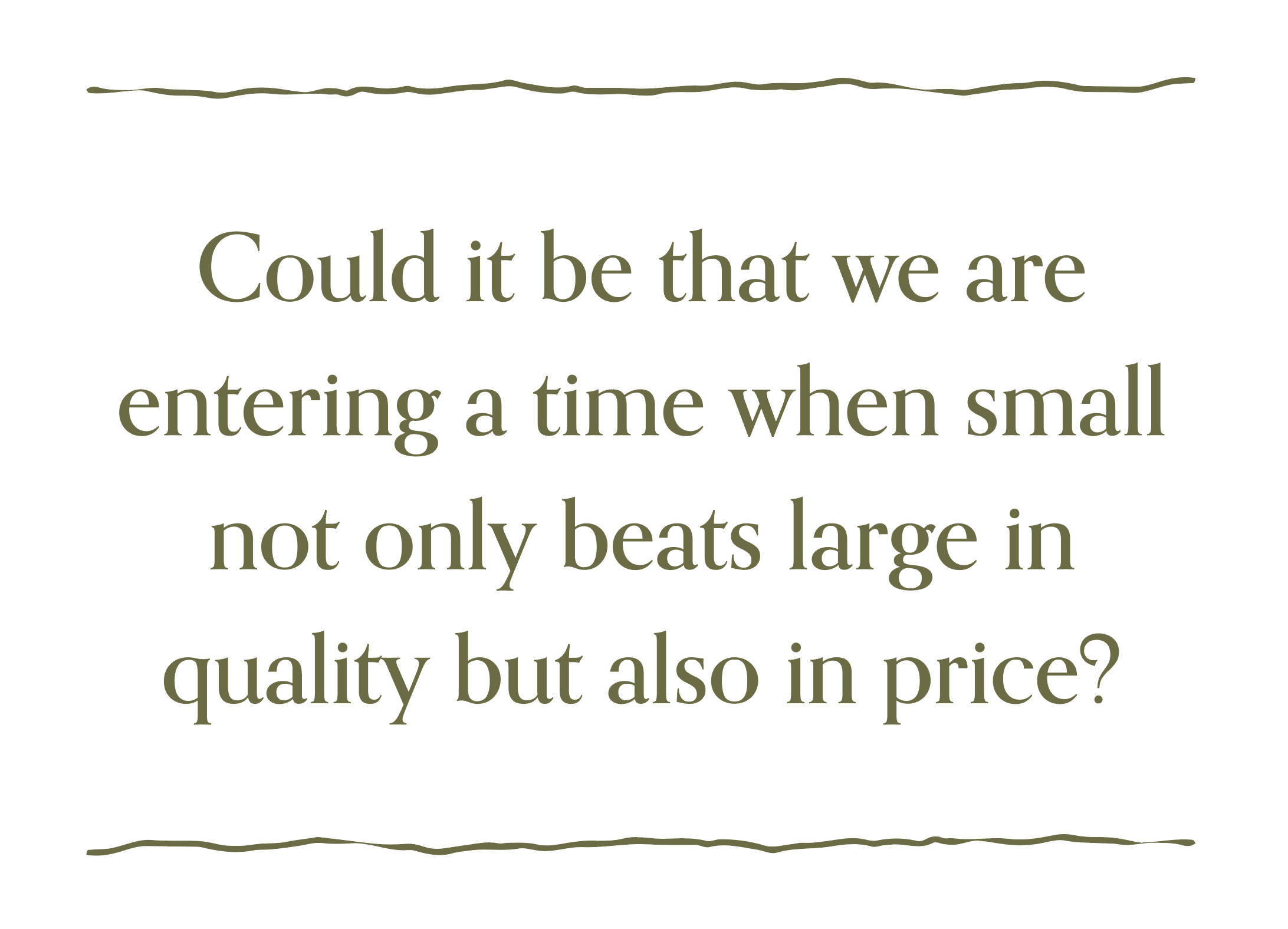
The second major cultural shift is contactless retail. Covid accelerated what was already developing through doorstep distribution. Certainly, Amazon, UPS, and FedEx were big prior to covid, but the new home-bound workplace and paranoia about venturing outside the house sprayed jet fuel on this trend. Markets that rural folks couldn’t reach just a decade ago are now not only reachable, but distribution logistics efficiency makes internet sales with doorstep delivery prices competitive.
Our farm began shipping nationwide on July 4, 2019, less than a year before covid upended our country. A decade earlier, putting frozen meat and poultry in a box and shipping it via UPS was largely price prohibitive. But through logistics technology, these big distribution outfits kept shaving off pennies and then dollars on the cost of shipping to the point where now it’s affordable.
As brick-and-mortar retail interfaces face mounting costs to keep their sidewalks clean, light bulbs burning, and lawyers well-fed, contactless retail keeps getting cheaper. As a result, the historically disparate price is falling dramatically, offering unprecedented opportunities for small and rural crafters of all types to access urban markets. This democratized access and more equitable pricing put rural crafters on competitive par with their larger urban counterparts.
These two changes in the market landscape represent an earthquake shaking up marketing as we’ve known it. Some of us are saying, “Good, it’s about time.” Others are scared to death that little speedboats like us will outrun and outmaneuver their aircraft carriers. Finally, small may get the recognition it deserves. Growth is not bad, but growth for the sake of growth has no inherent merit. Cancer is a growth.
Creating room for small and mid-sized businesses may turn out to be an unexpected blessing from covid. Time will tell how all this plays out, but for now, small players like our farm are enjoying advantages we couldn’t have imagined a few short years ago. That bodes well for better creation stewardship.
This article was published in the April 2022 issue of Plain Values Magazine. If you want the latest stories every month, subscribe to the magazine HERE. As a special thanks, get 10% off your subscription with the code “GAB23”!

Joel co-owns, with his family, Polyface Farm in Swoope, Virginia. When he’s not on the road speaking, he’s at home on the farm, keeping the callouses on his hands and dirt under his fingernails, mentoring young people, inspiring visitors, and promoting local, regenerative food and farming systems.


